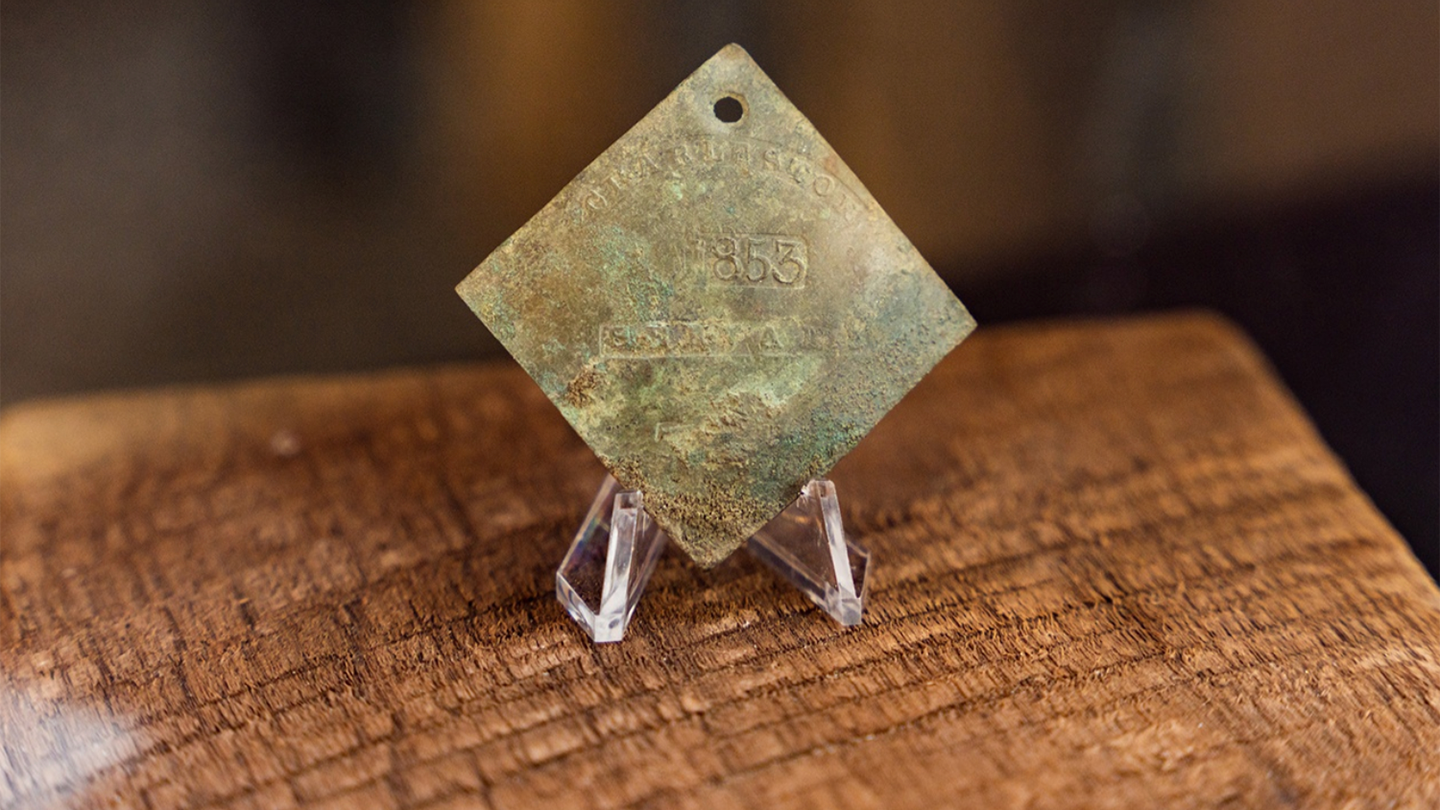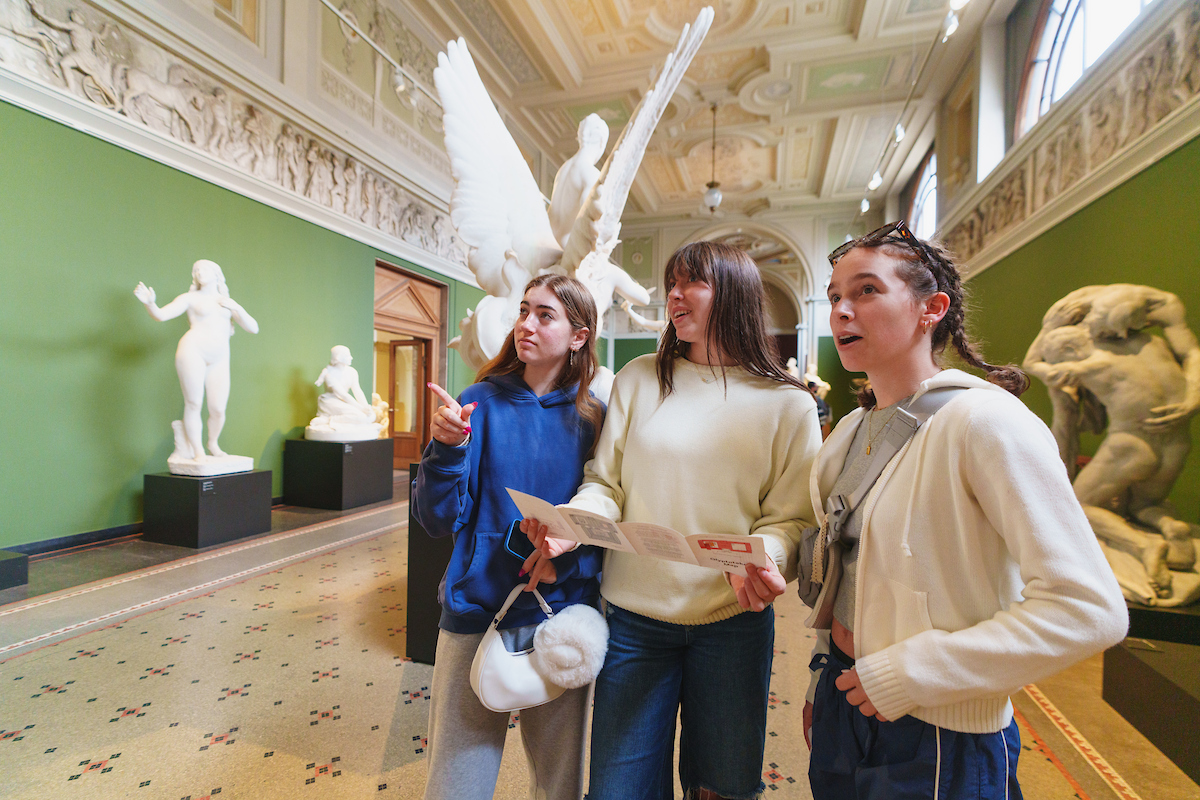Archaeology Major
Study archaeology to work in academia or business.
You'll learn the theory, methods, and applications of archaeology. You'll study the social sciences, humanities, and natural sciences, which will prepare you to work in museums, universities, government agencies or the private sector. You may find employment as an educator, analyst, administrator or consultant.
Why study Archaeology at the College of Charleston?
Study in Charleston, one of the nation's oldest cities. It's home to Native American, colonial, plantation, and war-era societies. With so much history, you'll have ample opportunity to conduct research and fieldwork near campus. Our faculty have both local and international connections and can help you arrange a research internship abroad.
What will I learn?
You'll learn how to study and take care of the material remains of our past. In this program, you'll learn how to integrate data from a variety of sources, including:
- historical records.
- artifacts.
- the soil itself.
You'll use this data to discover what happened hundreds — or even thousands — of years ago.
View Curriculum: Archaeology
Program Highlights
-
Hands-on learning
All students are required to take part in a field school or internship, and many work with faculty on archaeological research through assistantships and formal classwork. Others seek internships with local museums, state/national parks, and nonprofit organizations.
Internship OpportunitiesThe Lowcountry is extremely rich with archaeological and cultural resources, and there are many opportunities for internships. Archaeology facilitates student internships with private practice, municipal/state/federal agencies, and non-profit groups.
FieldworkAs an archaeology student, fieldwork or a similarly structured internship is a requirement. You will take part in an archaeological project or take part in actively studying archaeological material through other experiential learning opportunities.
Study AbroadArchaeology is a worldwide discipline, and you can take advantage of fieldwork and study opportunities all over the world. Former students have studied in Athens and the Netherlands. Others have completed fieldwork across the world.
- Italy
- Portugal
- Greece
- Israel
- Belize
- Ireland
- Hungary
- More!
-
Faculty Expertise
We feature faculty that engage in research in the Lowcountry and across the world. Their expertise includes:
- Egyptology.
- Greek and Roman civilizations.
- Byzantine and Medieval periods of the eastern Mediterranean and Iberian Peninsula.
- Paleolithic Europe.
- the Caribbean.
- historic and prehistoric archaeology of the American Southeast.
Faculty are also proficient in:
- geoarchaeology.
- archaeological computing.
- the African diaspora.
- urban, environmental and landscape archaeologies.
-
Location
The Lowcountry is one of the most archaeologically dynamic spaces on the continent. It holds a rich and significant history that stretches from indigenous societies to some of the most formative (and traumatic) socio-economic systems for our country. All of that history has left a mark. The city and surrounding landscape serve as an unparalleled living laboratory for archaeology.
Careers & Outcomes
What can you do with a major in archaeology? Take a closer look at the career journeys of our alumni and browse the data below to discover where their College of Charleston degrees have taken them.

Archaeology Comes to Life
Students and faculty of archaeology excavate the remains of a 19th century kitchen on the College of Charleston Campus.



Artifact Named Among Top 10
A 19th century slave tag was named by Archaeology magazine as one of the top 10 discoveries of 2021. The discovery came about via excavations conducted by the archaeology program on the College of Charleston campus.
Read More
About the Minor
A minor in archaeology complements many majors.
- Anthropology
- Physics
- Art and art history
- Classics
- Environmental sciences
- History
- Religious studies
- Many more
Archaeology offers a unique perspective on human history and culture. It can help you understand where, when, and how people lived. You'll also improve your research, writing, and computational skills.
View Curriculum: Archaeology Minor
Related News

CofC Expands EPIC Scholars Program with FDTC

